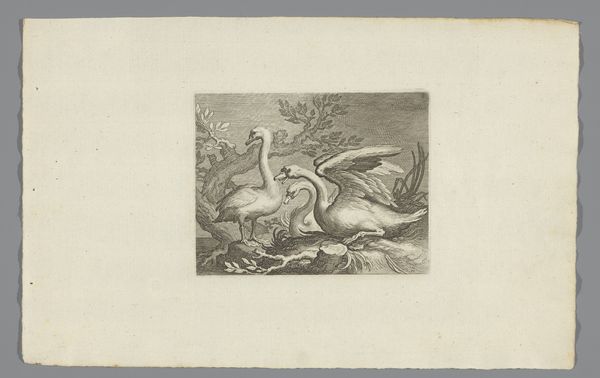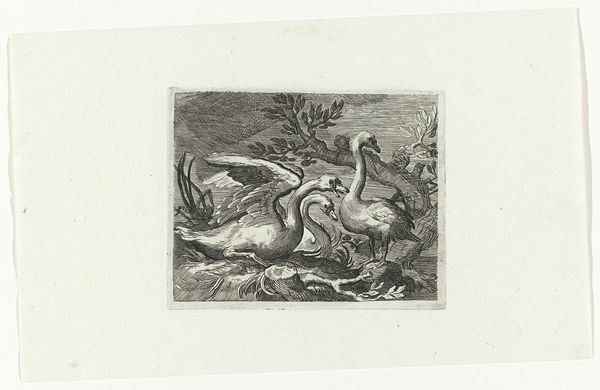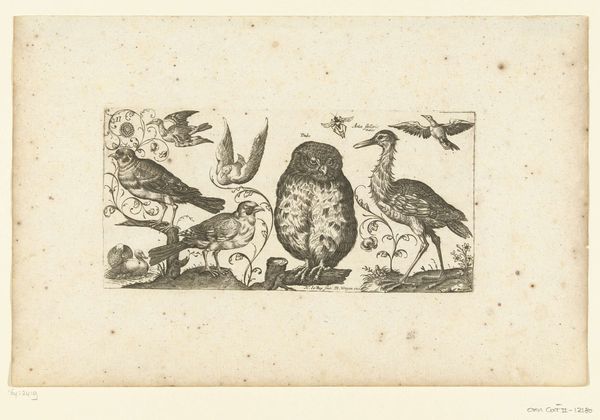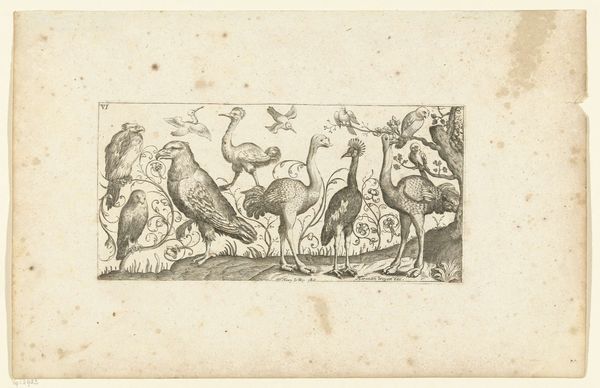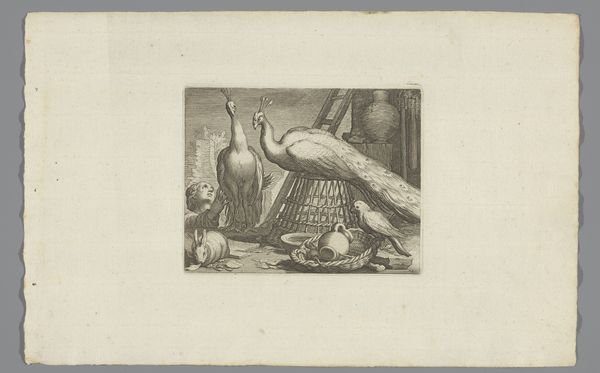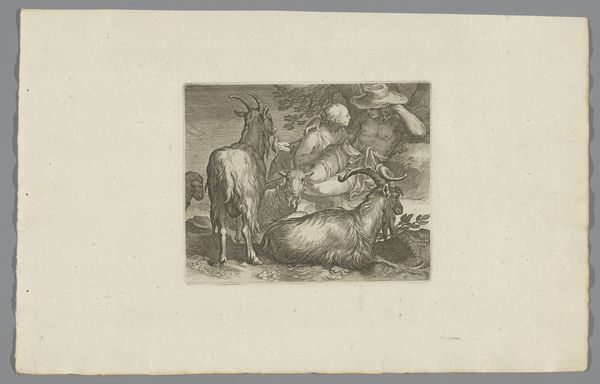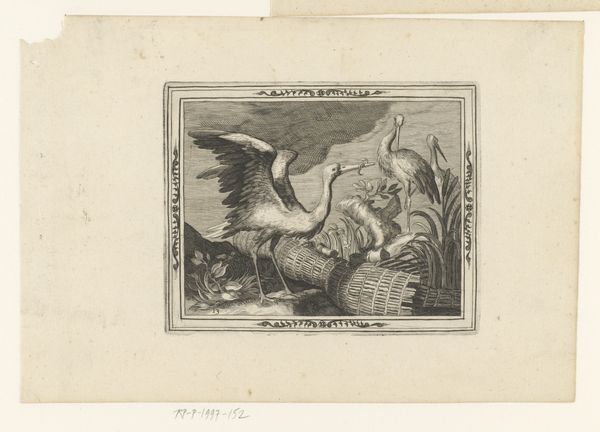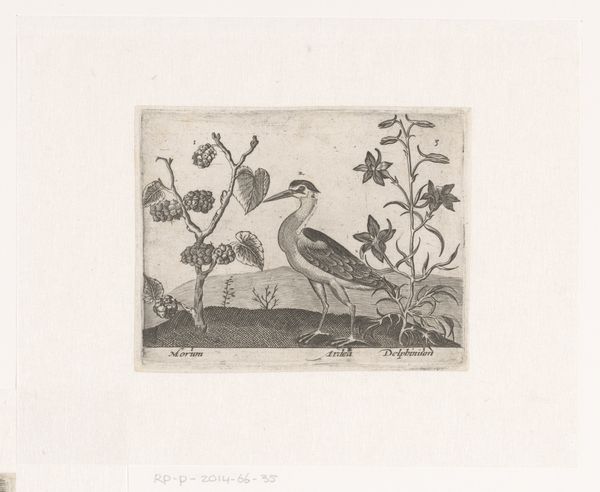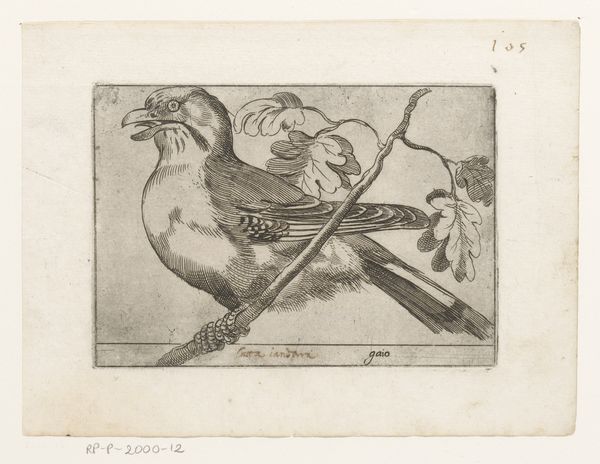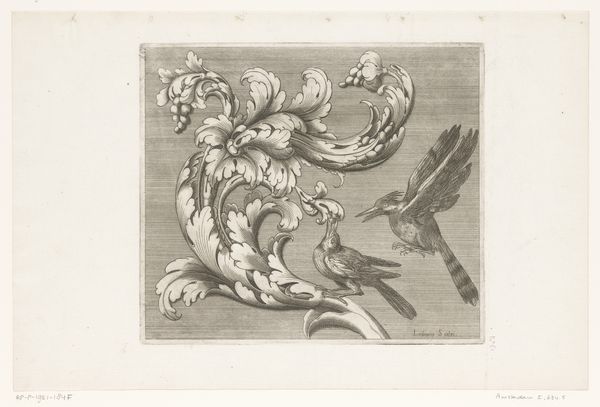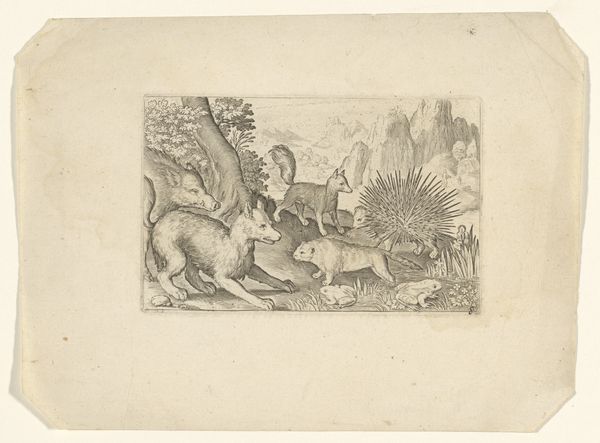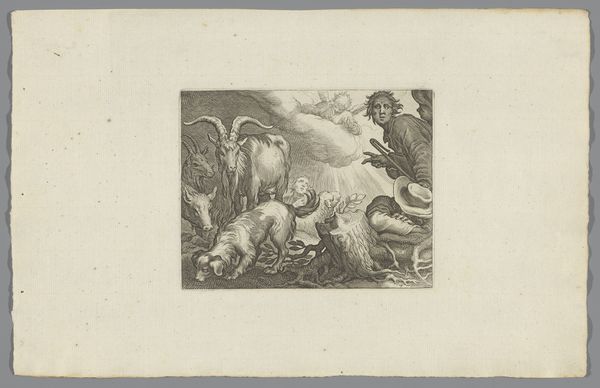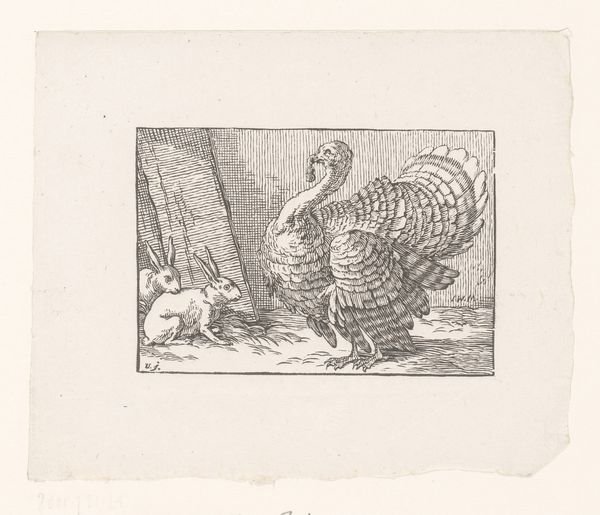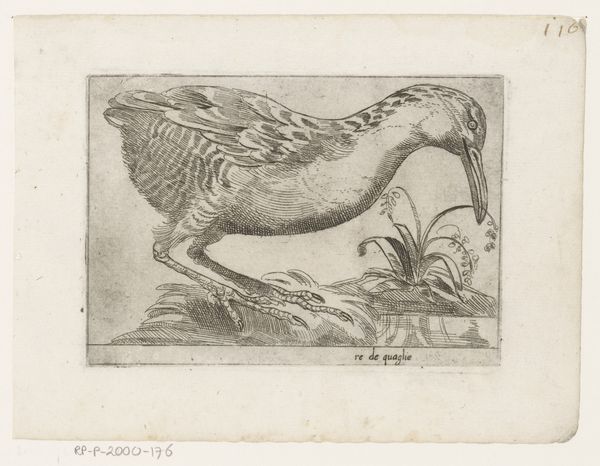
#
aged paper
#
toned paper
#
light pencil work
#
ink paper printed
#
personal sketchbook
#
pen-ink sketch
#
ink colored
#
sketchbook drawing
#
watercolour illustration
#
sketchbook art
Dimensions: height 110 mm, width 142 mm
Copyright: Rijks Museum: Open Domain
Editor: Here we have "Ooievaars," or "Storks," by Boëtius Adamsz. Bolswert, dating roughly between 1611 and 1732. It looks like an ink sketch on paper. The storks themselves are so gracefully rendered, but the whole scene feels quite busy and I'm wondering what to focus on first. How do you interpret this work? Curator: Immediately striking is the dynamic arrangement. Note how the artist utilizes a central, almost triangular composition with the storks. Consider the texture created by the intricate lines and the interplay of light and shadow. It lends the work depth, does it not? The storks, emerging from reeds near what seems to be a discarded basket, command our attention through contrast. Editor: Yes, the linear detail is exquisite. It’s fascinating how such simple materials create such a vivid image. But why storks? Curator: We must observe the artist’s meticulous focus on line, shape, and form. Note the tension in the central stork’s extended wings; it almost bursts from the frame. The choice of subject is, of course, relevant. However, as Formalists, we analyze the impact of these symbolic creatures within the pictorial structure first. Is it not through the careful distribution of mass and space that we perceive meaning? Editor: So, instead of diving straight into symbolism, we dissect the visual elements themselves. I suppose that makes sense. It does push you to look at how skillfully the piece is made first, rather than just wondering 'what does it mean?'. I hadn't really considered it that way. Curator: Precisely. By prioritising formal relations, we are led towards understanding through the senses and logic of art. Now, considering Bolswert's graphic ingenuity and attention to composition... what do we make of this arrangement now? Editor: Okay, I get it. Analyzing the work in terms of visual structure enhances my appreciation for the artist's technique and artistic choices. Thanks!
Comments
No comments
Be the first to comment and join the conversation on the ultimate creative platform.
